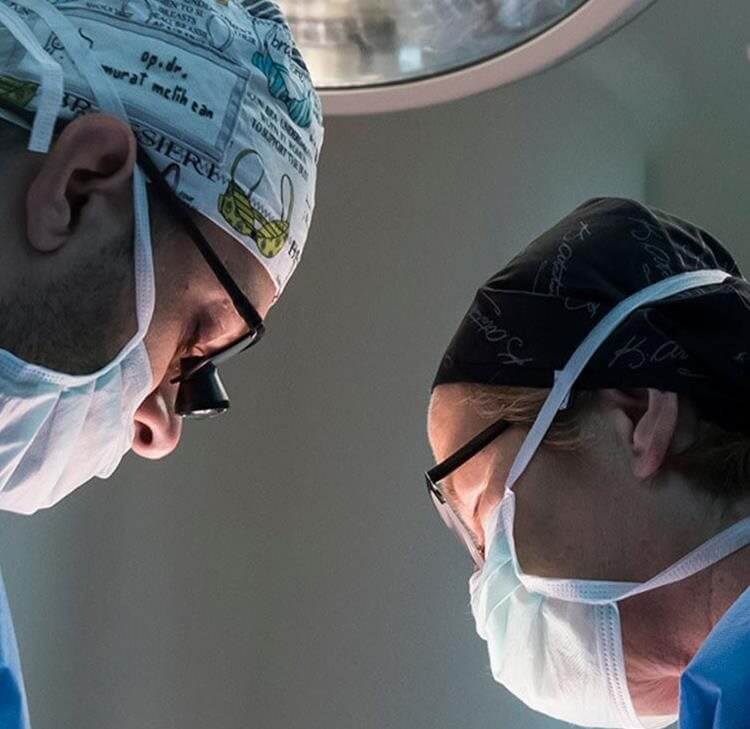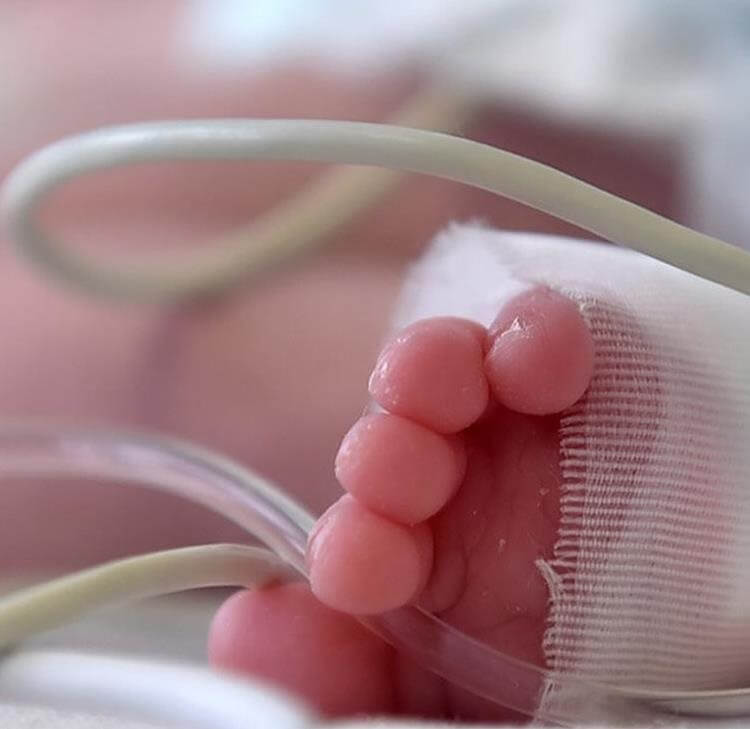Medical Protection Society successful with fundamental dishonesty ruling
In Simpson v Payne, the Defendant Applicant (Defendant) was successful before His Honour Judge Murdoch in their application for a finding of fundamental dishonesty against the Claimant resulting in an enforceable costs order against the Claimant directly.
Summary
In Simpson v Payne, the Defendant Applicant (Defendant) was successful before His Honour Judge Murdoch in their application for a finding of fundamental dishonesty against the Claimant resulting in an enforceable costs order against the Claimant directly.
The Claim
The Claim was initially brought against the Defendant for the alleged negligent breast augmentation surgery by the Defendant in February and May 2013. The Claimant alleged that the surgery had left her unable to work as a glamour model for seven months and that she had to undergo revision surgery in Belgium in September 2013 to rectify the appearance of her breasts. It was pleaded that the Claimant had only become satisfied with her appearance after the surgery in Belgium and this is when she was able to work. The Claimant also made a claim for livery and stabling costs as it was pleaded that she was unable to ride her horses following the surgery.
Allegations of fundamental dishonesty
Browne Jacobson was instructed to represent the Defendant and their investigations revealed that the Claimant:
- Was able to work after the allegedly negligent operations and had in fact done so;
- Had suffered extensive post-operative complications following her surgery in Belgium which would suggest that she was not in fact happy with her appearance after that surgery;
- Was able to return to riding and looking after her horses by June 2013.
- Had put forward an inaccurate account of her ability to work to the medico-legal experts and had failed to disclose material medical records which would have revealed that she suffered from post-operative complications following the surgery in Belgium.
The Defendant pleaded fundamental dishonesty in the Counter Schedule of Loss. The Claimant discontinued the Claim against the Defendant only 7 working days before Trial. The Defendant was granted permission to pursue allegations of fundamental dishonesty.
Social media evidence was disclosed to the Claimant evidencing the Defendant’s allegations of fundamental dishonesty which showed the Claimant working as a glamour model during the relevant period and which confirmed that she had been riding her horses.
Claimant’s response to the allegations of fundamental dishonesty
The Claimant’s original pleaded case stated that she had ‘not been able to work from 13 February 2013 to 27 September 2013 when I recovered from the surgery in Belgium’. Following the allegations of fundamental dishonesty and disclosure of the supporting documents her case changed suggesting:
- She did not mean that she was unable to work at all, she simply meant that she had not been able to work as much as planned as she had not been able to fully expose her breasts or carry out live recordings;
- She had undertaken some live recordings from June 2013 but they were brief as she kept her breasts covered up and the recordings did not last long;
- The social media photographs were stock or edited photographs;
- She did not earn any money from glamour modelling between February and May 2013 but in July and August she began to receive payments;
- Her original statement contained subtle drafting errors.
The Claimant did not respond to the allegation that she had in fact been able to ride her horses despite her initial statement confirming ‘I was unable to lead them up from the field from February until September 2013’,
Further disclosure
The Claimant was ordered to disclose all medical records from February 2013 onwards and evidence in support of her loss of earnings claim to include bank statements. The Claimant did not comply with the Court Order. The Claimant was also asked to disclose evidence to support her suggestion that the social media photographs were stock/edited images. No evidence was produced.
Further evidence was however obtained on behalf of the Defendant following a detailed intelligence investigation which resulted in hundreds of screenshots of the Claimant working live on TV and in photoshoots fully exposing her breasts between February and September 2013. A statement from the Defendant surgeon was also served confirming that the breasts shown on the photographs posted between February and September 2013 were consistent with the breast implants that he had placed and were therefore photographs which had been taken after the surgery.
The Claimant did not produce any evidence to support her denial of the allegations.
Hearing of Defendant’s Application
The Claimant remained in the witness box for only a very short period of time and gave no comment answers to the majority of the questions put on behalf of the Defendant despite having been given a warning that an adverse inference could be drawn if she did not answer the questions. No explanation was provided as to the screenshots showing the Claimant working live on TV with her breasts exposed. The Claimant simply maintained that her case had never been that she was unable to work fully. She also blamed her previous solicitors indicating that she had not read her witness statement before signing it.
The decision
Murdoch J concluded that the Claimant had been fundamentally dishonest in the primary and substantial part of her Claim. He:
- Did not accept that the Claimant was unable to work as claimed stating ‘in my Judgement, those social media messages, those photographs, were a true representation of what was going on at that stage.” [42]
- Did not accept any of the Claimant’s explanations for the evidence produced, and instead relied on the testimony from the Defendant’s evidence that the photographs were taken after the surgery that he performed: “I have to say, his evidence was convincing, and I accept his evidence”. [37]
- Stated that the Claimant had failed to produce any evidence of her earnings over the period to support her assertion that she had not been paid for the work (e.g. from the TV company). Further, the Claimant did not stay in the witness box to be cross-examined on this matter and the explanation “that was made up on the hoof was simply untrue”. [39]
- Did not accept that the Claimant’s previous solicitors were at fault or that she would have signed the last page of her statement without bothering to read it. He said this “was simply not true. She read that witness statement, she was presenting the case that she had not worked for seven months and she had lost income”. [44]
In conclusion, he stated “the long and the short of it all is, in my Judgement, the Respondent has lied to this Court about her ability to work and has lied to this Court in presenting a claim that, for seven months, she was unable to work and unable to earn an income.” [47].
Murdoch J also found that the Claimant had been fundamentally dishonest in her claim that she had been unable to ride her horses.
The Defendant has been granted permission to enforce the costs order of the action including the Application and hearing of the issue of fundamental dishonesty pursuant to CPR 44.16 (1).
Impact of decision
In reaching his decision, Murdoch J has made it clear that Claimants who pursue claims of negligence which are fundamentally dishonest will face significant cost consequences, regardless of whether the Claim is discontinued, pursuant to paragraph 12.4 of Practice Direction 44.
This case should serve as a reminder to Claimants who pursue fundamentally dishonest Claims that they cannot simply walk away before trial to avoid facing the consequences in court. It also highlights the importance from the Defendants’ perspective to ensure thorough investigations are undertaken.
Louise Jackson is a Senior Associate at Browne Jacobson and was instructed by MPS in this case.
Related expertise
You may be interested in...
Opinion - Maternity services
University Hospital Leicester hold their inaugural Maternity Safety Conference
In Person Event
Navigating your way through high profile sensitive reviews and investigations
Opinion
Junior doctors vote unanimously in favour of strike action
Opinion
Can toilet facilities amount to sex discrimination?
Published Article
Digital Twin Technologies: key legal contractual considerations
Opinion
Consultation launched on minimum ambulance service levels during strike action
Opinion - Maternity services
Changes to redundancy protections for employees post-maternity leave
Legal Update - Shared Insights
Shared Insights: Coroners’ Question Time
Press Release - Careers
Browne Jacobson health lawyer wins major accolade at Made in Manchester Awards
Opinion
BMA issues medical locum rate card for junior doctors
Legal Update
Employee who refused to wear a face mask fairly dismissed
Opinion
New toolkit to support safer recruitment in the care sector
Legal Update
Green Leases for the NHS
Guide
Government response to the consultation on the Higher-Risk Buildings Regulations
Published Article
The first 100 days for Integrated Care Boards
Opinion
Menopause and the workplace
On-Demand
Future of Care - Retirement Living webinar
In Person Event
Independent Healthcare In-House Lawyers Forum
Opinion
Government introduces new “anti-striking laws” to be discussed in Parliament
Press Release - Maternity services
Father Christmas comes to University Hospital Coventry and Warwickshire care of Browne Jacobson’s Birmingham Office Community Action Group
Opinion - Maternity services
The Patient Safety Incident Response Framework (PSIRF) and its impact on maternity services
Legal Update - Shared Insights
Shared Insights: Looking ahead to 2023 – what Health and Care employers need to know
Opinion
Coroner’s refusal to issue a Prevention of Future Deaths Report following death in prison custody inquest was lawful
Article
Mental health, eating disorders and placement of young people
Legal Update
LPS consultation and ‘go live’ planning
Opinion
Consultation launched on plans to amend NHS pension rules to bolster NHS workforce
Legal Update
Getting ready to face Industrial Action
Legal Update - Shared Insights
Shared Insights: Prolonged disorders of consciousness
Published Article
How AI and technology can transform the healthcare sector
On-Demand
The UK's green agenda - the outcomes of COP27 and actions since COP26
On-Demand
Insights from the Chief Coroner by His Honour Judge Thomas Teague, KC
Opinion
BMA advises consultants not to accept less than the BMA minimum rate card for extra-contractual work
The BMA is advising all NHS / HSCNI consultants to ensure extra-contractual work is paid at the BMA minimum recommended rate and to decline offers of extra-contractual work that doesn't value them appropriately.
On-Demand
Leadership and lessons learnt during the Pandemic by Professor Jonathan Van-Tam
Legal Update - Shared Insights
Shared Insights: The Patient Safety Incident Response Framework
Guide - Maternity services
Mediation guide for Clinicians: What do you need to know and how do you need to prepare
Opinion
NHS England – Updated Transaction Guidance
NHS England has published (October 2022) new guidance - Assuring and supporting complex change: Statutory transactions, including mergers and acquisitions.
Opinion
NHS England – Assuring and supporting complex change
NHS England has issued an updated (publication 11 October 2022) suite of Complex Change guidance about how it will assure and support proposals for complex change that are reportable to it. New and (where it is still in force) existing Complex Change guidance are as follows.
Legal Update
The Retained EU Law
Created at the end of the Brexit transition period, Retained EU Law is a category of domestic law that consists of EU-derived legislation retained in our domestic legal framework by the European Union (Withdrawal) Act 2018. This was never intended to be a permanent arrangement as parliament promised to deal with retained EU law through the Retained EU Law (Revocation and Reform) Bill (the “Bill”).
Legal Update
Economic crime and cybercrime
It is clear that the digital landscape, often termed cyberspace, is a man-made environment, in which human behaviour dominates and where technology both influences and aids our role in it — through the internet, telecoms and networked computer systems, which are often interdependent. The extent to which any organisation is potentially vulnerable to cyber-attack depends on how well these elements are aligned.
Legal Update
Redundancy consultation and selection concerning expiry of a fixed term contract – EAT put the spotlight onto a ‘selection pool of one’
In Mogane v Bradford Teaching Hospitals NHS Foundation Trust the Employment Appeal Tribunal (EAT) considered whether it was fair to dismiss a nurse as redundant on the basis that that her fixed-term contract was due to expire before that of her colleague.
























